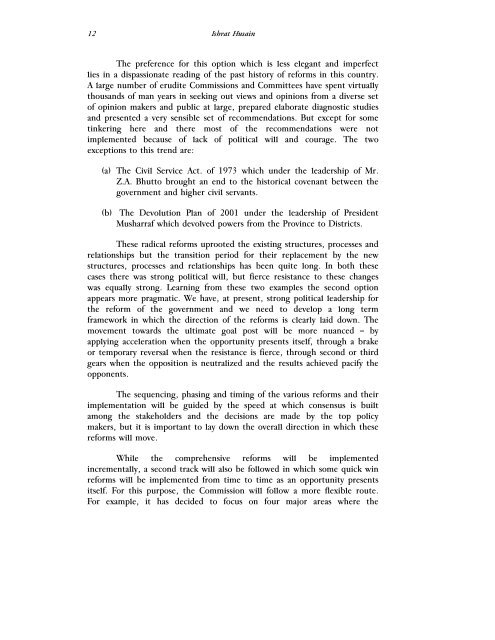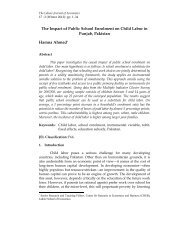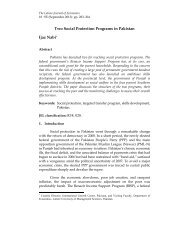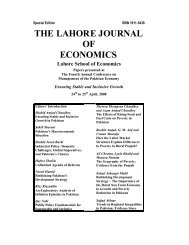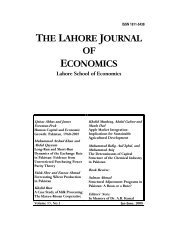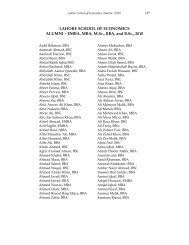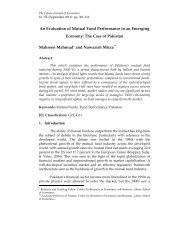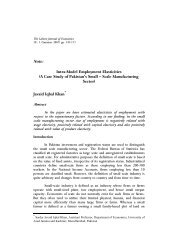Special Edition-07.pdf - Lahore School of Economics
Special Edition-07.pdf - Lahore School of Economics
Special Edition-07.pdf - Lahore School of Economics
You also want an ePaper? Increase the reach of your titles
YUMPU automatically turns print PDFs into web optimized ePapers that Google loves.
12<br />
Ishrat Husain<br />
The preference for this option which is less elegant and imperfect<br />
lies in a dispassionate reading <strong>of</strong> the past history <strong>of</strong> reforms in this country.<br />
A large number <strong>of</strong> erudite Commissions and Committees have spent virtually<br />
thousands <strong>of</strong> man years in seeking out views and opinions from a diverse set<br />
<strong>of</strong> opinion makers and public at large, prepared elaborate diagnostic studies<br />
and presented a very sensible set <strong>of</strong> recommendations. But except for some<br />
tinkering here and there most <strong>of</strong> the recommendations were not<br />
implemented because <strong>of</strong> lack <strong>of</strong> political will and courage. The two<br />
exceptions to this trend are:<br />
(a) The Civil Service Act. <strong>of</strong> 1973 which under the leadership <strong>of</strong> Mr.<br />
Z.A. Bhutto brought an end to the historical covenant between the<br />
government and higher civil servants.<br />
(b) The Devolution Plan <strong>of</strong> 2001 under the leadership <strong>of</strong> President<br />
Musharraf which devolved powers from the Province to Districts.<br />
These radical reforms uprooted the existing structures, processes and<br />
relationships but the transition period for their replacement by the new<br />
structures, processes and relationships has been quite long. In both these<br />
cases there was strong political will, but fierce resistance to these changes<br />
was equally strong. Learning from these two examples the second option<br />
appears more pragmatic. We have, at present, strong political leadership for<br />
the reform <strong>of</strong> the government and we need to develop a long term<br />
framework in which the direction <strong>of</strong> the reforms is clearly laid down. The<br />
movement towards the ultimate goal post will be more nuanced – by<br />
applying acceleration when the opportunity presents itself, through a brake<br />
or temporary reversal when the resistance is fierce, through second or third<br />
gears when the opposition is neutralized and the results achieved pacify the<br />
opponents.<br />
The sequencing, phasing and timing <strong>of</strong> the various reforms and their<br />
implementation will be guided by the speed at which consensus is built<br />
among the stakeholders and the decisions are made by the top policy<br />
makers, but it is important to lay down the overall direction in which these<br />
reforms will move.<br />
While the comprehensive reforms will be implemented<br />
incrementally, a second track will also be followed in which some quick win<br />
reforms will be implemented from time to time as an opportunity presents<br />
itself. For this purpose, the Commission will follow a more flexible route.<br />
For example, it has decided to focus on four major areas where the


